With a Big Smile to a Great Win
Slowtwitcher and Every Man Jack athlete David Morris had a stellar day at IRONMAN 70.3 Atlantic City and grabbed the win there on a 1st generation Cervelo P5 that belongs to his brother. Morris was all set and ready to go to Kona and his brother who shares the same passion and fit coordinates had offered to let him to his bike initially there, but with Kona postponed a new target was set and Atlantic City it was – with the P5.
Slowtwitch: Thank you for your time.
David Morris: Thanks for the honor of an interview Herbert!
ST: Word actually has it that you are taking a bit of time off from racing and training with Kona pushed to February and possibly further out.
David: Yes, that’s correct. I’ve started my off season break, although it will most likely just be a few weeks before I get back on a regular but somewhat relaxed schedule. I’m definitely a creature of habit and enjoy the routine of training by this point in my triathlon career.
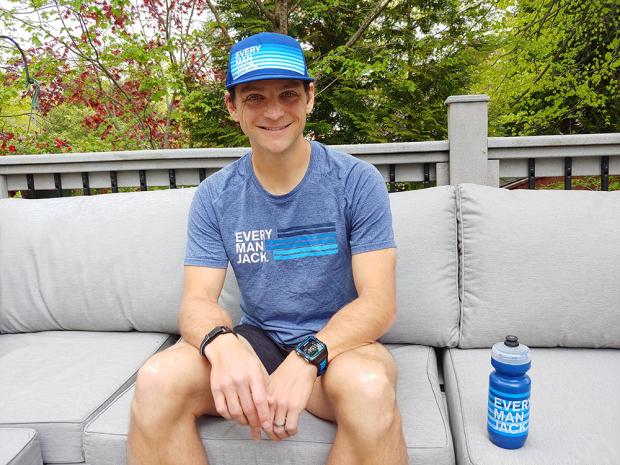
ST: What are you up to in your off season?
David: Nothing too out of the ordinary. I'm mostly spending more time with friends and family, I'm trying to play a little golf, which I don't really have time for in season, and we've got a family weekend getaway planned for mid-October. I've also made it a goal to explore all the trails that I can run to from my home this fall.
ST: But you recently raced IM 70.3 Atlantic City and really crushed it there.
David: Thanks! I had a great day there. Racing is fun, and I’m always happy to be able to have a race where I feel like it represents my current fitness level.
ST: Was that race even on your calendar mid earlier this year?
David: Nope. When Kona was canceled, I wanted to use all of the training I had been doing for that race for something, so I signed up for a local sprint at the end of August and then AC 70.3.
ST: It seemed all fell into place for you in Atlantic City, so maybe you can talk about your race.
David: It did! I was able to have my fastest half IRONMAN swim, fastest half IRONMAN bike, and second fastest half IRONMAN run two days before I turned 40, which, as someone who has been doing this sport since my early 20s, is something I’m pretty proud of.
My plan going into the race was to swim hard because I’ve been swimming more consistently this year than in any other year. I did that and felt strong on the first loop of the bike, but when got the end of the first loop at 20 miles into the bike, I got a split of 3 minutes to the lead cyclist and thought I’d better just keep riding hard. I started to feel the effects of the effort at 45 miles, but I was able to get the leader within sight by T2. We had a good battle the first 4 miles of the run, but I was able to steadily pull away and win my first IRONMAN 70.3 race! I’m ecstatic that I’ve been able to stay healthy and keep seeing improvements in my fitness and racing all these years.
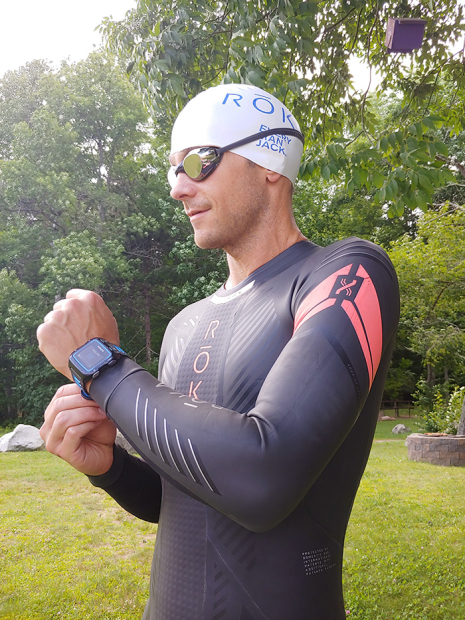
ST: We want to know about your race bike.
David: I’ve been on old technology for a long time now. I ride a Cervelo P4 with a Vision non-integrated bar, a Hed H3 front wheel, and a Renn disc rear wheel. That’s been my setup since 2012 which means it is probably time for an upgrade! The bike is still fast, but I would love to be able to use wider tires, have a rear brake that works a little better, and have better storage options. For Atlantic City, I was on a borrowed bike. I have a very nice older brother who loaned me his P5 to race in Kona because his bike is a little bit faster than mine, and I used that in Atlantic City.
ST: You must feel lucky that your brother not only is similar in size but also has a similar passion.
David: I do! It's great to have someone to bounce ideas off of and to go riding outside with when we get to see each other. We've also done a bunch of meetups on Zwift, which definitely is motivating and more fun for me than riding alone.
ST: You said that it is maybe time for an upgrade. What are you eying?
David: I'm definitely a function over form person, and one thing I wanted to schedule this offseason was a bike fit, get my coordinates, and then work my way back to all the options from that point. Thanks for the reminder to schedule that!
ST: Lake Placid in 2005 was your first longer triathlon I think. What bike did you ride back then?
David: I rode an aluminum Felt F50 road bike with clip on bars and stock wheels. I got the bike before my junior year of college, used for the early part of my triathlon racing, and absolutely loved it.
ST: You apparently were a bit in over your head with that race distance, but it somehow inspired you.
David: Ahh, “a bit in over your head” is an understatement! I had done a couple of sprint tris, and then I watched IRONMAN Lake Placid and naively said, “I can do that.” I didn’t have enough respect for the distance at 22/23 years old, and I definitely should have considering I hadn’t really trained for swimming at all, I’d maybe ridden 40 miles a few times in my life, and I’d never run more 8 miles at once at the point when I registered a year out from the race.
In the course of the next year, I fell in love with the training and the sport! When I crossed the finish line in 2005, and most times since then when I’ve finished a full distance IRONMAN, I’m pretty done with IRONMAN. But when I start recovering, I always get the itch to try to figure out how to do better next time. I love challenges and I love puzzles, and IRONMAN racing combines those two things unlike anything else I’ve ever encountered.
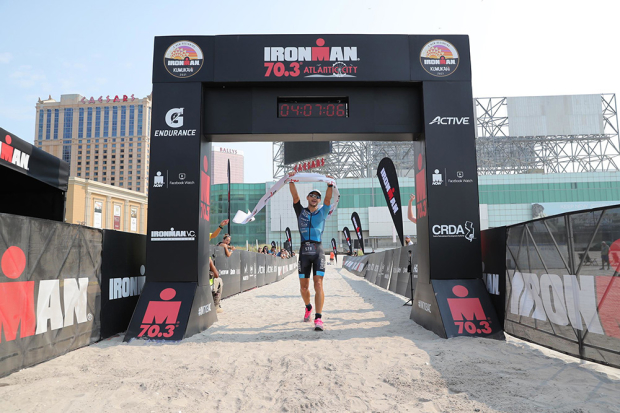
ST: At what point did you think that you might be good at this sport?
David: That’s a great question. My brother got a wired PowerTap hub back in 2006, and I ended up doing my first, and only, ramp test on that (I still remember how much it hurt!) because who can back down from a brotherly challenge. I put out some solid numbers, but I had no idea what they meant at the time. When I started learning more about the sport, I realized that I had the good problem of not getting a lot of speed for my watts, and that kicked off a process of trying to improve.
The Slowtwitch forums were an incredibly valuable resource, and, in the process of trying to figure out how to go faster on my bike, I learned a ton about training for the swim and run as well. I started producing better and better results from 2008-2010, and it was probably sometime in those years where I realized that I might be able to keep getting better.
ST: In 2019 you had a great race at IRONMAN Maryland with a time of 8:47. Where does that result rank in terms of accomplishments for you?
David: Way, way up there, but I think I would still rank my 2012 IRONMAN Lake Placid race over that race. The 8:47 at IRONMAN Maryland was the primary result that allowed me to get on to the Every Man Jack Triathlon Team, and the team has been such a positive experience for me that it’s a huge point in favor of IRONMAN Maryland. I had the race lead from a little bit after mile 100 on the bike until mile 25 of the run, but I got caught and passed, and I ended up 2nd overall after leading for long time. I’m very proud of that day because it was my fastest IRONMAN race by far, but in 2012 at Lake Placid, I finished 5th overall and 1st amateur in a race with some quality professional athletes. Those two races are 1 and 1A for me in terms of the feeling of accomplishment, and it probably depends on the day you ask me which one I would choose as my best accomplishment.
ST: how much faster do you think is possible? And where would that time come from?
David: That’s a good one! My goal is to try to find a 10-15 minute improvement over my 2019 IRONMAN Maryland result (course dependent, of course). I still believe I have gains I can make, mostly on the swim and run. I think I’ve gotten almost all the low hanging fruit that’s available to me except for maybe my body composition. I raced at about 165 pounds and 10% body fat this year, and if I can get to 8% body fat, I would be faster running. After that, it’s hard to point to any one thing and say that’ll make me faster. I have some symmetry and balance issues in my swim stroke that I’m working to clean up. I’m going to mix up my bike and run training a little bit this fall to try to get a little bit better in each, but given the amount of time that I train and have to train and my advancing age, I think I’m getting close to my potential. I’ve been very consistent with my bike and run training over the past three years, and that’s likely why I’m still improving. Another year of consistent training will hopefully produce some more small gains.
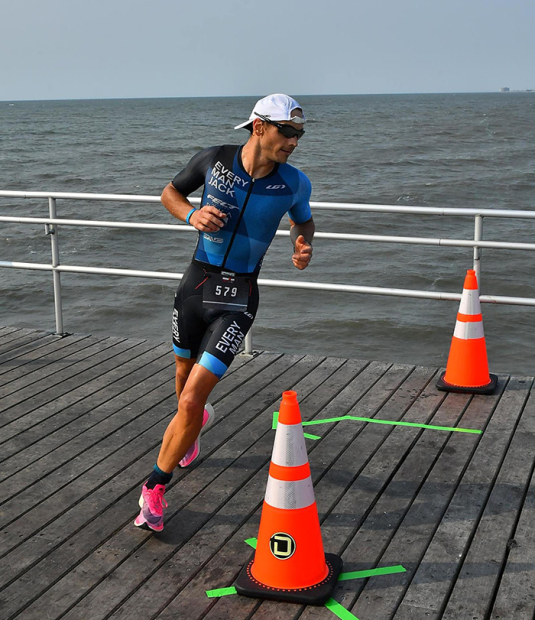
ST: Talk about your day job.
David: I’m a partner in small, but growing, software company that helps doctors, practices, and hospitals collect data from and communicate with their patients. I’ve primarily been responsible for our quality assurance along with several other operations related responsibilities since I started there in 2004. We were just a few people at that point, but now we’re hiring and will be close to 40 employees by the end of the year. It’s been a fun, challenging ride growing a business.
ST: Tell us about your training and how it is structured.
David: I try to keep things pretty simple. I run 5-6 days per week, most of which is easy running. I have a period where I’ll do a hill reps once or twice a week and then I try to do 2-3 economy sessions a week, e.g., 12 x 20” FAST on 60” or 10 x 30” FAST on 90”. I probably only roll through 10 different swim sessions over the course of a year, and since pools started opening last winter, I’ve been in the water 2-3 days a week for 2500 to 4500 meters depending on the time of the year. I ride 3 days a week, and I probably do fewer than 10 different bike sessions over the course of the year. I’m able to train in the mornings and then get out at lunchtime for a shorter second session which normally is a run.
I found complexity created a barrier to consistency for me, and finding a routine and schedule that works week after week has been really beneficial for my family life and my fitness. I don’t do rest weeks or “down” weeks, and I don’t schedule rest days (because life has a way of getting in the way!). Every week looks pretty similar to the previous week, and I try to make changes gradually to allow my body to adapt to increases in training load.
ST: Of your cycling training, how much is indoor and how much is outside?
David: I have spent over 95% of my time indoors over the past few years. It’s just too convenient for me with children because I can be home, and my wife can still get out for whatever she would like to do. I can also start in the dark in the morning and get hours done before the rest of my family is awake. I only just started using Zwift this year, and after using it for a few months, I decided that I should upgrade to a sweet Tacx Neo 2T smart trainer. I had no idea what I was missing out on all those years on a dumb trainer! I was ok with being a hamster without Zwift and a smart trainer, and with those improvements to my indoor training experience, I’ll be sticking with it for the foreseeable future. I do love and miss riding my bike outside, but for training, indoors is tough to beat for me.
ST: What about running?
David: Running was my weakest discipline for the longest time, but as I mentioned before, I try to keep the structure simple. I went to the BarryP six days a week plan in 2011, and since then I’ve averaged over 30 miles a week through a few injuries, off season breaks, and when my children were infants (twins, born in late 2013). I don’t do a huge amount of intensity because as bigger guy, it always beats me up. I try to keep my harder efforts on the short end of the spectrum. Running is the hardest sport for me to adjust to new training loads, so I always try to get back to running consistent mileage as the first step back from the off season.
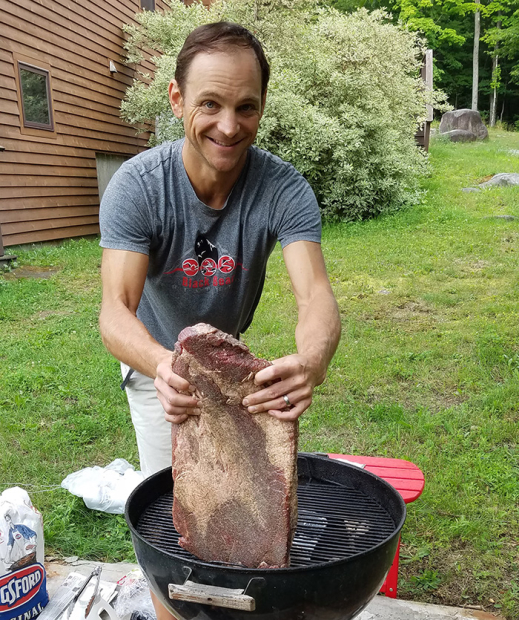
ST: Word has it that you like to cook. What is your specialty?
David: I love cooking (and eating!). When I was young, my Mom always asked me for help with menu planning for the week whenever she was stuck, and I always liked helping her prepare dinner when I had the chance to. It’s been a passion of mine as long as I can remember.
I go through phases where I like to experiment with new things and try new techniques, but I also enjoy finding easy weeknight meals that are tasty. My most recent phase has been smoking different meats (going to smoke a brisket this weekend, mmm, brisket), but in the past I’ve had an Indian curries phase, a Greek phase, a sous vide phase, a frying phase, a French phase, and probably some others that I’m forgetting right now. I also like finding simple food that tastes good, and my most recent addition there is a recipe for a French country omelet with potatoes, onions, tomatoes, and eggs that I can prepare in 20-25 minutes and will feed the whole family. One of my favorite things to relax to is to throw on a cooking show and try to learn something new or find an interesting recipe.
ST: Is there anything else we should know?
David: You really want to give me an open platform this far in? First, I’d like to say thanks to all the race directors and volunteers who were able to make races happen this year. I can’t begin to imagine the challenges associated with race production in a pandemic, and I appreciate all those people who were able to make events happen this year.
Second, I’d like to say thanks to Every Man Jack and the rest of the sponsors of the team (Roka, Garmin, SockGuy, Boco Gear, Lululemon, Hyperice, Gu, Louis Garneau, Felt Bicycles, ENVE Composites, and ISM) for all of their support. I feel privileged to be a part of the team, and it’s inspiring to be surrounded by so many high achievers who are genuinely good people.
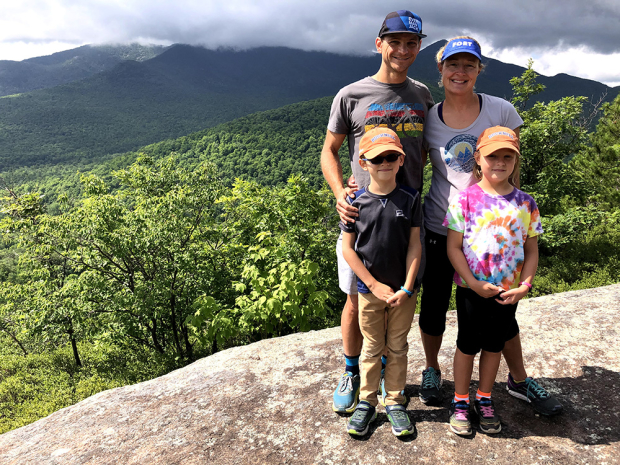
Finally, thanks to my wonderful wife, Deanne, and children, Colin and Juliet, for all the support (and tolerance) of this hobby!
Images 3 & 4 © FinisherPix



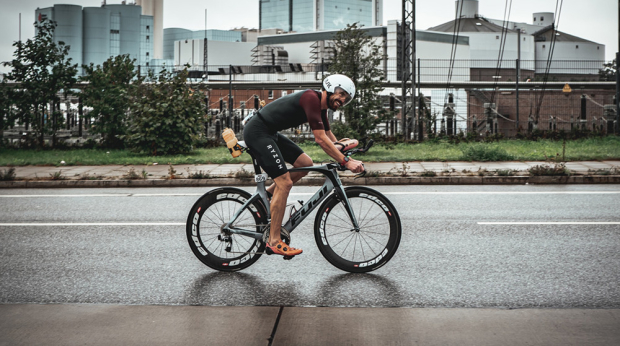
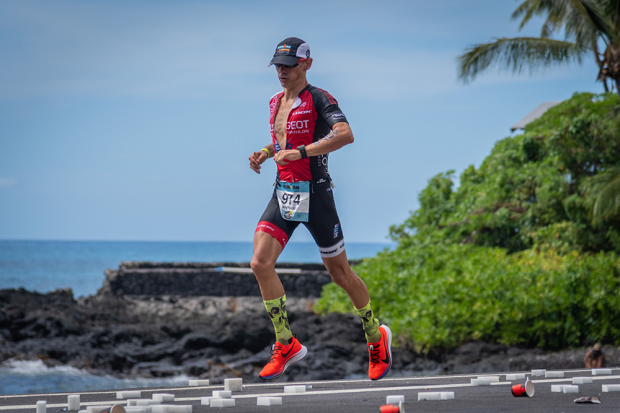
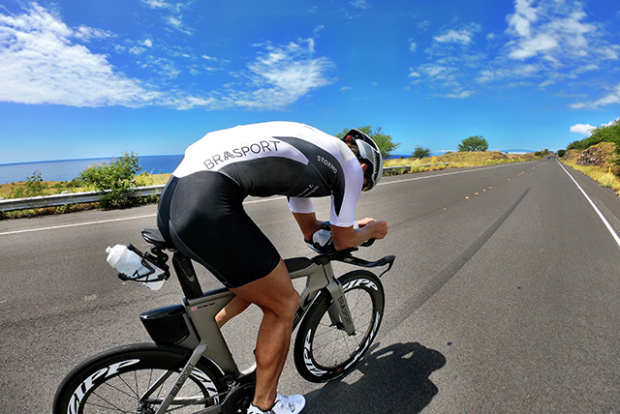

Start the discussion at forum.slowtwitch.com